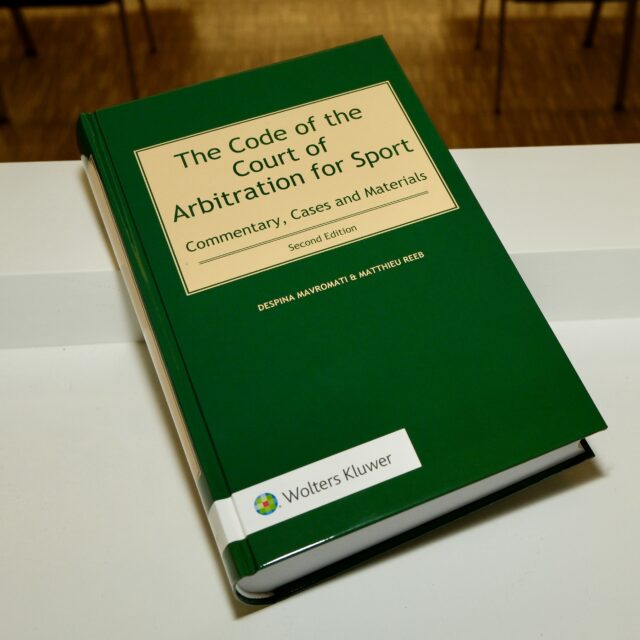SFT 4A_92/2025, Judgment of 4 July 2025, FC A. v. B. & FIFA, Motion to set aside CAS Award of 15 January 2025 (CAS 2023/A/9636)
This judgment addresses the complex interplay between the jurisdiction of the FIFA DRC and CAS on the one hand, and national labour courts on the other, and is significant in several respects. In setting aside a CAS award in a football employment dispute in Hungary, the SFT confirmed that Clause 49 grants exclusive jurisdiction to the Hungarian labour courts for employment disputes, irrespective of the clause’s imprecise wording or of the international character of the dispute.
Facts
An employment dispute arose in 2022 after a contract signed between Hungarian club FC A (“the Club”). and player B (“the Player) from 2020 until 2023. As per Clause 49 of their contract, “The Parties agree that they shall make efforts to settle (…). If these efforts fail (…) the Parties may turn to the organizational units with MLSZ or FIFA scope of authority, in case of labour dispute to the Administrative and Labour Court having competence and scope of authority, and in all other disputes arising out of their legal relationship the Parties stipulate the exclusive jurisdiction of the Sports Standing Arbitration Court based on the Article 47 of the Sports Law. (…)” (emphasis added).
In parallel, Article 22(1)(b) FIFA RSTP (2022 edition) stipulates that FIFA is competent to hear employment-related disputes of an international dimension, unless the parties have opted in writing for an independent national arbitration tribunal that satisfies certain requirements (equal representation, fair proceedings, etc.).
The Player filed a claim before the FIFA DRC after terminating the contract with immediate effect, claiming salary and damages. In 2023, the FIFA DRC partially upheld the claim and ordered the Club to pay compensation.
The Club subsequently appealed to the CAS, arguing that the FIFA DRC lacked jurisdiction due to the exclusive jurisdiction of the Hungarian labour courts and that a claim was already pending before the Hungarian Labour Court. In September 2023, the Club informed CAS that the Hungarian Labour Court had rendered its final judgment holding that the Player had terminated the employment contract unlawfully.
The CAS found that FIFA DRC had jurisdiction and partially upheld the claim.

The Motion to set aside the CAS Award
In its subsequent motion to set aside the CAS Award against the Player and FIFA, the Club relied on lack of jurisdiction (Article 190(2)(b) PILA) as well as on a violation of res judicata (Article 190(2)(e) PILA). However, the SFT, having confirmed the lack of jurisdiction, did not examine the res judicata argument.
With respect to the lack of jurisdiction, the Club did not allege “the arbitral tribunal’s lack of jurisdiction” but rather the “dismissal of the player’s claim on the grounds of lack of jurisdiction” (“die Abweisung der Klage zufolge Unzuständigkeit.”). Interestingly, the SFT held that the interpretation of the disputed Clause 49 was admissible, however the request of dismissal of the Player’s claim due to lack of jurisdiction was inadmissible.
The SFT reiterated that the ground for challenge of Article 190 (2) b PILA only covers the jurisdiction of the arbitral tribunal (in casu the CAS) that rendered the contested decision and not the instance prior to the CAS (e.g. the first-instance non-arbitral proceedings (at 4.2).
However, in this case the claimant did not contest FIFA’s jurisdiction but rather CAS’ (wrong) reliance on Article 22 RSTP, which according to the Club was rendered inapplicable due to a valid opting-out in favour of the Hungarian Labour Court. In order to determine this, the SFT had to interpret Clause 49 and whether there is any other court alongside the Hungarian Labour Court, so that the Club’s claim fell within Article 190 (2) b PILA.
The Findings of the SFT
The SFT confirmed the Sole Arbitrator’s finding that the CAS’ appellate jurisdiction cannot extend beyond that of the internal FIFA body and its jurisdiction depends on whether there is a valid arbitration agreement in favour of the CAS (and FIFA) for this international employment dispute (at 5.3).
Restrictive Interpretation of the Waiver to the State Court Jurisdiction
The SFT reiterated that an arbitration agreement waives the state court jurisdiction and limits venues of appeal, so that such waiver should not be easily assumed, requiring a restrictive interpretation (at 5.4). In essence, the SFT considered that the interpretation of Clause 49 made by the CAS (i.e. whether the Parties had derogated the FIFA DRC’s jurisdiction by a valid opting-out in favour of state courts) failed to consider the aforementioned restrictive interpretation of the waiver of state court jurisdiction. As such, the Sole Arbitrator wrongly considered that the jurisdiction of Clause 49 for the state Administrative and Labour Court was invalid or at least not exclusive (at 6.1).
Lack of Precedent in Arbitration: Yes, but…
Another noteworthy point is that the SFT had already examined Clause 49 on three prior occasions (see also my note on an earlier case here). Although the factual background differed – since those cases concerned players appealing CAS decisions that had declined FIFA DRC jurisdiction over the merits – the substantive interpretation of the clause itself remained unchanged (at 6.2). In fact, in all three cases, the SFT had confirmed that Clause 49 provided for the exclusive, rather than merely alternative, jurisdiction of Hungarian state courts for employment disputes (4A_430/2023 of 23 February 2024 at 5.5).
As such, and notwithstanding the lack of precedent in arbitration, the present case raised the exact same question related to Clause 49 and there were no “different factual circumstances” requiring a different assessment (cf. 4A_460/2024 of 10 March 2025 at 1).
Impact of Voluntary and Compulsory Arbitration on the Waiver of State Court Jurisdiction
The SFT then turned to Clause 49, noting that its nature as a standard, non-negotiable clause did not distinguish the present case from the three earlier ones. Importantly, it emphasized that the discussion around voluntary versus compulsory arbitration becomes relevant only where the parties choose arbitration in place of state court jurisdiction, not the reverse. This is logical because arbitration constitutes a departure from the ordinary recourse to state courts: what matters, therefore, is the restriction of access to judicial remedies resulting from a mandatory submission to arbitration, rather than the hypothetical imposition of “forced” state court proceedings (at 6.4.3).
On the other hand, the fact that Clause 49 was standard in these contracts would only affect the way of interpreting it, i.e. following principles of objective / statutory interpretation (at 6.3.1 and 6.3.3).
The distinction between international and domestic employment disputes was found to be equally irrelevant.
Alternative Jurisdiction of State Courts
With respect to the argument that Clause 49 would only confer alternative jurisdiction, the SFT reiterated its findings in the other three previous cases considering that neither the word “may” nor the imprecise description of the “Administrative and Labour Court” would change the confirmed SFT interpretation of Clause 49 as an exclusive jurisdiction clause in favour of the competent Hungarian labour court (cf 4A_64/2025 of 16 June 2025 at 3.3).
Finally, the SFT considered irrelevant the Player’s argument who had informed the Club that he would seize the FIFA DRC and the Club had not objected, to the extent that the latter contested FIFA DRC’s jurisdiction from the outset of the CAS proceedings, so that the Club’s conduct could not amount to an “Einlassung” or an abuse of rights (at 6.6).

Some Takeaways
This judgment is significant in many respects. First, it confirms that Clause 49 grants exclusive jurisdiction to Hungarian labour courts for employment disputes, regardless of the imprecise formulation of the clause or of whether the dispute is international.
It equally reaffirms the scope of Article 190(2) b PILA, which only extends to the jurisdiction of CAS and not of previous non-arbitral bodies; in the present case, however, the question was whether Clause 49 allowed the CAS to accept jurisdiction and thus made the matter fall squarely within Article 190 (2) b PILA.
The ruling further reiterates SFT’s jurisprudence requiring a restrictive interpretation of arbitration agreements that waive state court jurisdiction.
Interestingly, this SFT judgment clarifies that the distinction between voluntary and compulsory arbitration is not relevant where the clause preserves state court jurisdiction. Moreover, parties cannot be held to have tacitly waived jurisdictional objections (“Einlassung”) by mere silence and are not required to raise objections before the initiation of the arbitration proceedings.
In practical terms, this SFT judgment consolidates a series of SFT judgments based on the interpretation of Clause 49, signalling that Hungarian state labour courts retain exclusive competence for employment disputes (national and international) unless there is an explicit and unequivocal agreement to arbitrate within the FIFA/CAS system.
As such, even though arbitration does not follow a strict system of precedent, the SFT confirmed that when a case raises the exact same issue – as here with Clause 49, whose wording had already been examined in earlier SFT judgments – it should normally be decided in the same way, without departing from prior federal case law.








